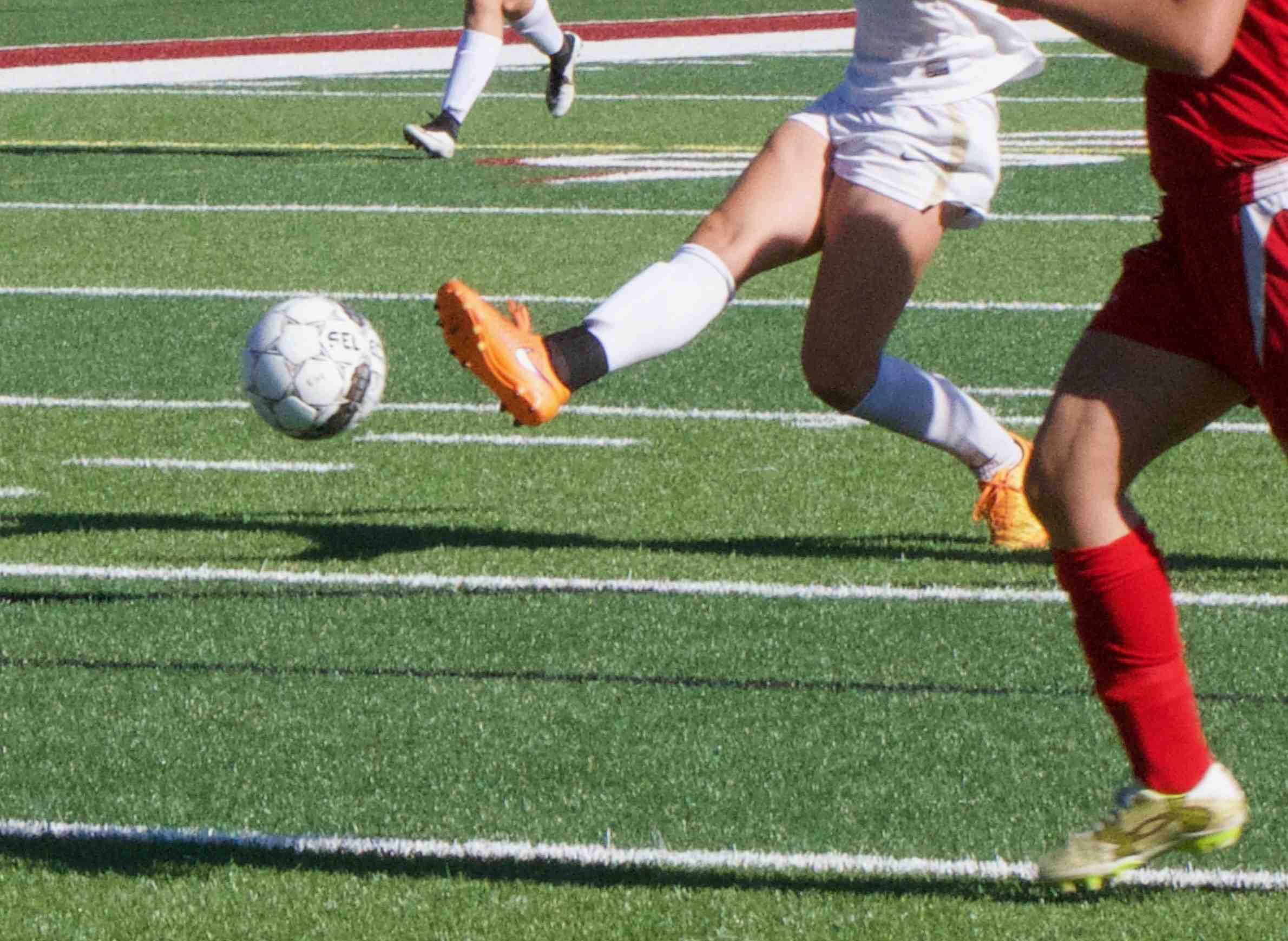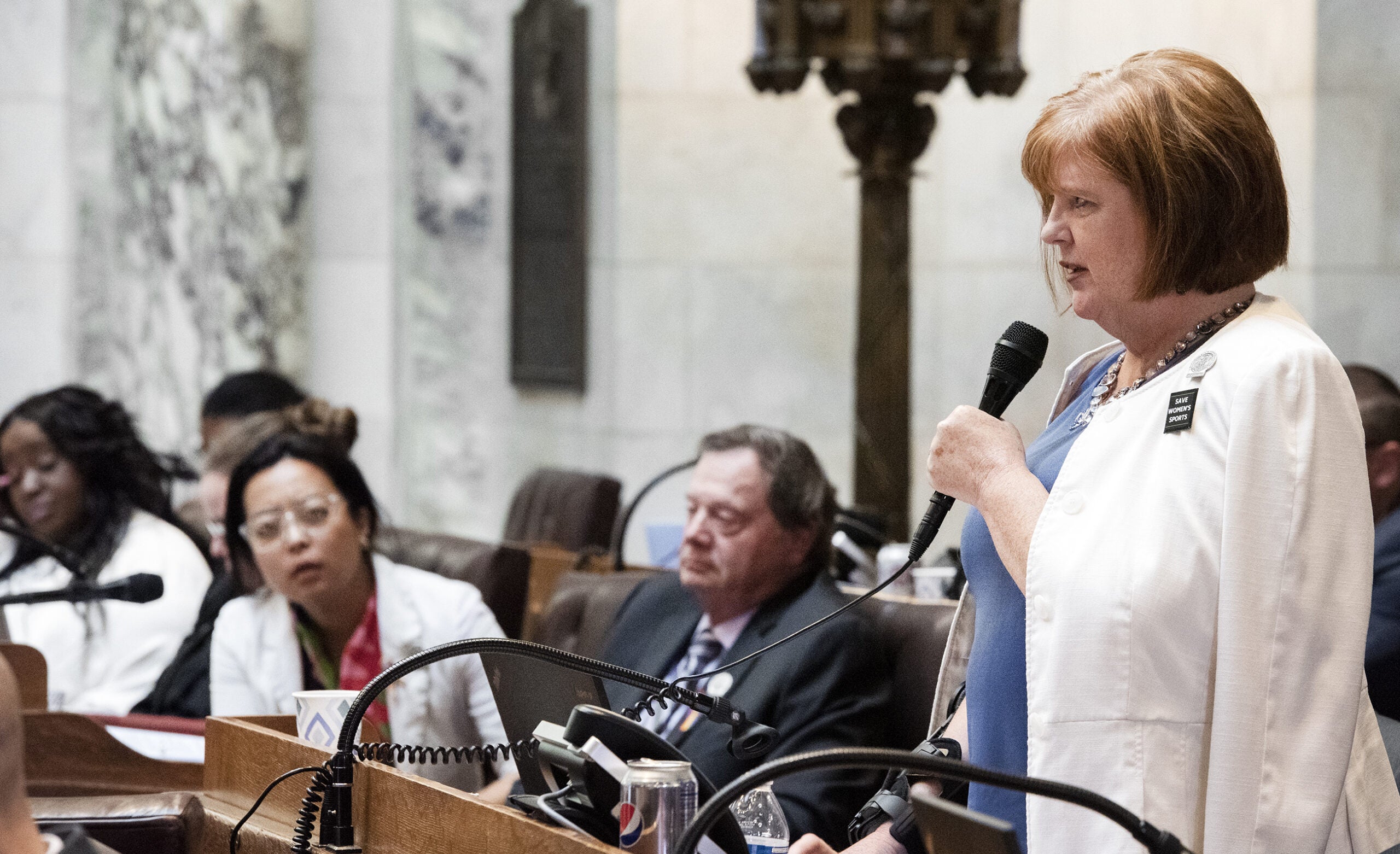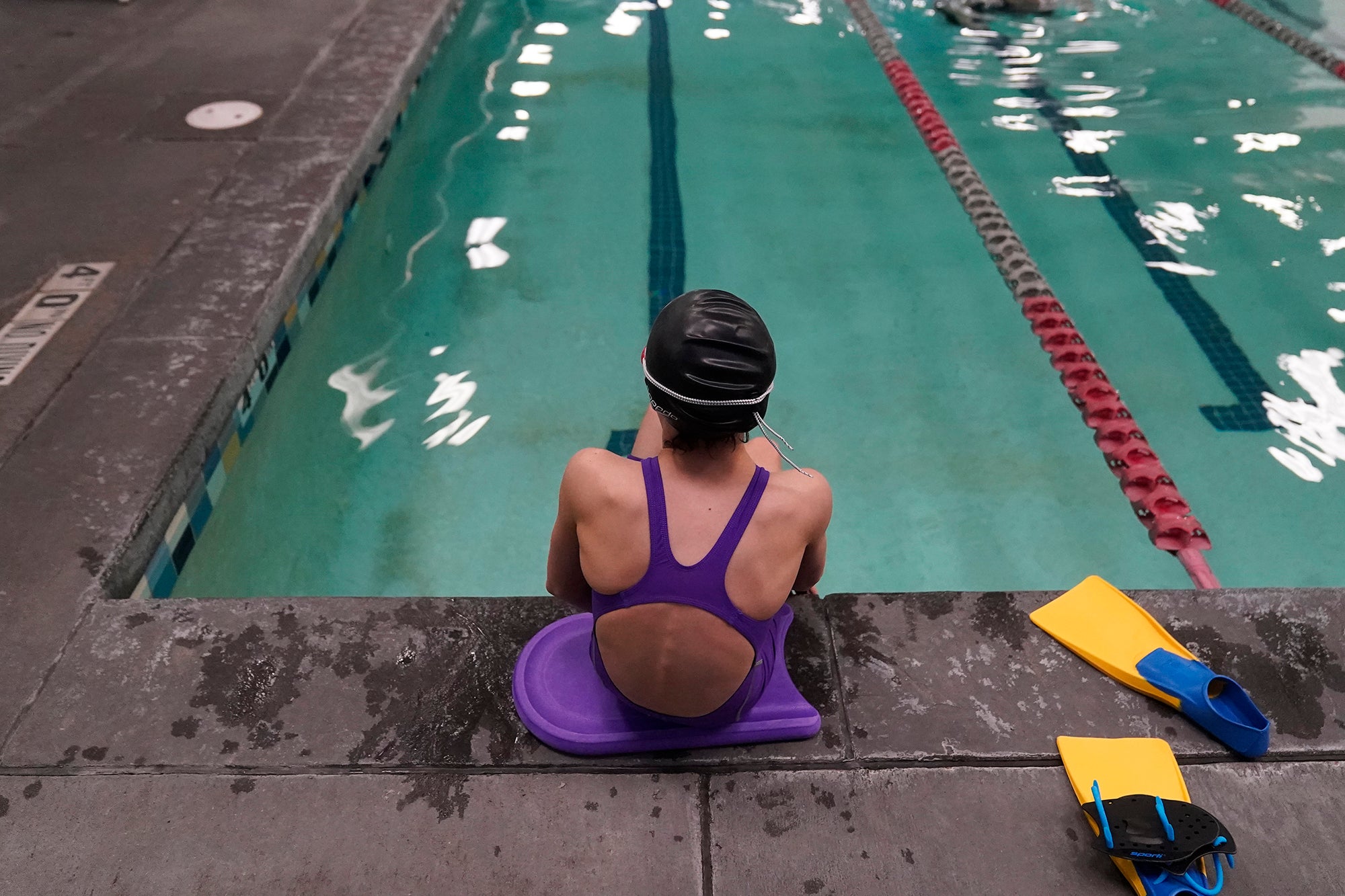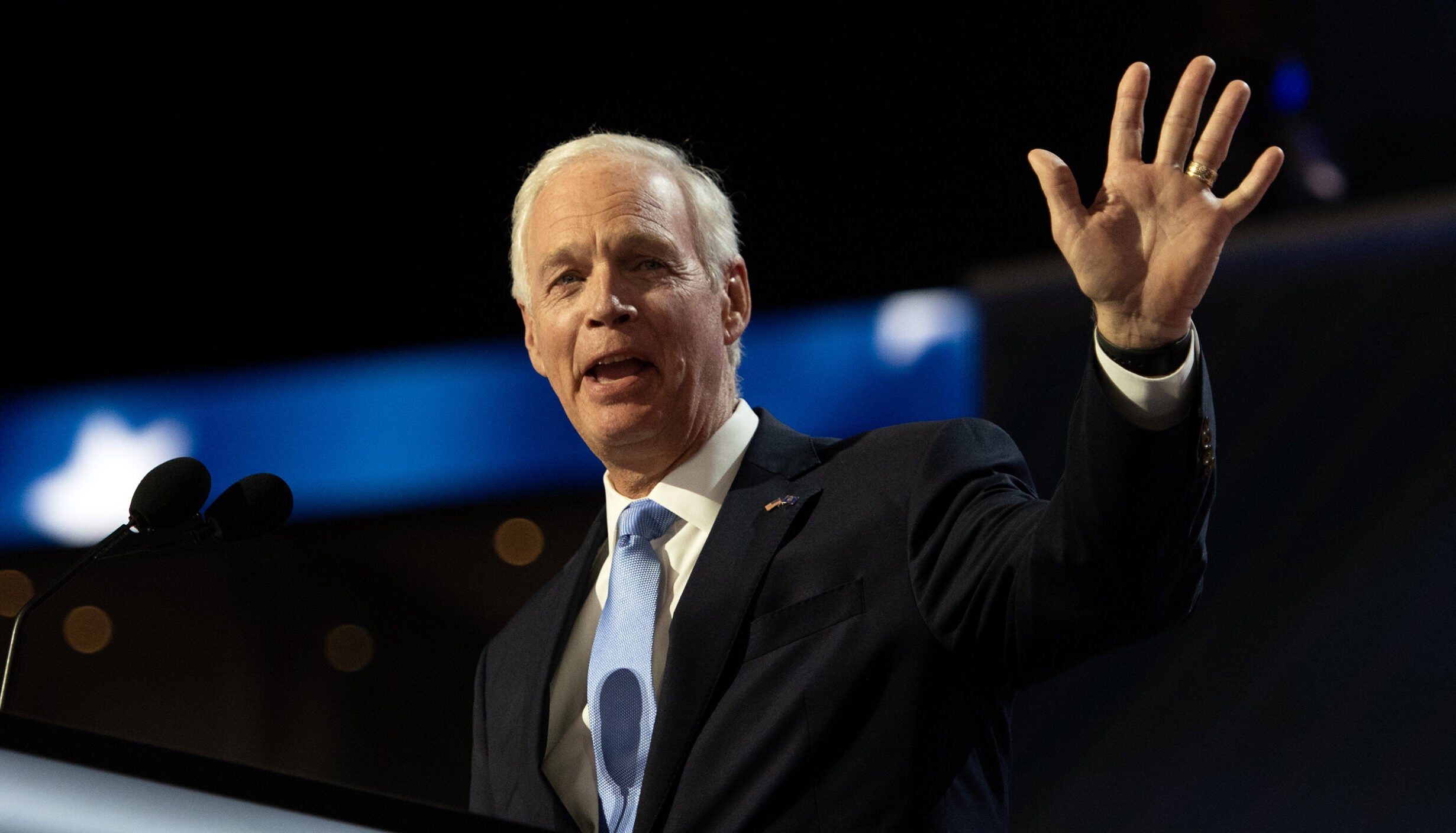Dozens of people, from transgender advocates to female athletes concerned about transgender competitors, gathered at the state Capitol on Wednesday to share concerns about and support for Republican bills that would bar transgender women and girls from playing on school sports teams that align with their gender identity.
Under one bill, K-12 public schools and private schools that participate in Wisconsin’s taxpayer-funded voucher program would be required to divide all sports teams by sex and officially bar any student who was designated male at birth from girls teams.
A second bill would require the same policies at University of Wisconsin System schools and state technical colleges for women’s teams.
Stay informed on the latest news
Sign up for WPR’s email newsletter.
The proposals mirror similar efforts around the country.
Supporters of the bills argue the change would protect other female athletes from injury and competitive disadvantage.
Mary Jo Walters, a parent in Madison, told lawmakers she is concerned about her daughter playing sports with transgender girls.
“My daughter’s competitive growth is being stunted even before she starts playing,” Walters said. “Allowing males to compete in girls sports is the end of girls sports.”
Several other parents and female athletes echoed that concern during the hearing.
Sherry Mix, a competitive female cyclist from Verona, said she has lost recent races to a transgender female athlete.
“This is not right, fair or just for all the women who train and compete fairly,” Mix said. “Every male on the female podium displaces a deserving female.”
“Bodies play sports, not gender,” said Miriam Ben-Shalom, founder of Hands Across the Aisle, a group that opposes transgender rights. “Male bodies are at a tremendous physical advantage over female bodies.”
However, members of the transgender community and transgender advocates pushed back sharply on the bills during their own testimony, saying the proposals are unnecessary and psychologically harmful to transgender students.
Sarah Yonan, who is nonbinary and played girls and women’s sports in school, told lawmakers transgender athletes want to have the same experience with sports as their peers.
“I’m not trying to get an upper hand, nor is any other trans kid,” Yonan said. “We just want to belong, we just want to go to school, and we just want to play sports.”
Sagan Pizzingrilli, a Madison teacher who coaches high school boys and girls soccer, said the existing Wisconsin Interscholastic Athletic Association requirements for transgender athletes to join the team that aligns with their gender identity are cumbersome. The requirements include receiving hormone replacement therapy for at least a year and having a signature from a doctor and parental consent before competing on a girls team.
“We’ve had trans athletes who have had to fight for years to be approved to play and, by the time they can play, they’re graduating out of high school,” Pizzingrilli said.
Quince Mountain, a transgender male athlete and advocate who competes in adventure sports like sled dog racing, argued against concerns about transgender girls winning competitions and beating out other female athletes for college scholarships.
“That’s not why we fund school sports. No one comes to you and asks for funding for school sports, as a state representative, so that 1 or 2 percent of kids can get an NCAA scholarship,” Mountain said. “It’s beside the point.”
If the bills are approved by the Republican-controlled state Legislature, they face a certain veto from Democratic Gov. Tony Evers. Evers reiterated his support for transgender students in a tweet on Wednesday.
“Trans kids deserve our love and respect and support just like any other kid. I stand with them,” Evers wrote.
Neither of the bills have been voted on in a state Assembly or Senate committee.
Wisconsin Public Radio, © Copyright 2025, Board of Regents of the University of Wisconsin System and Wisconsin Educational Communications Board.




